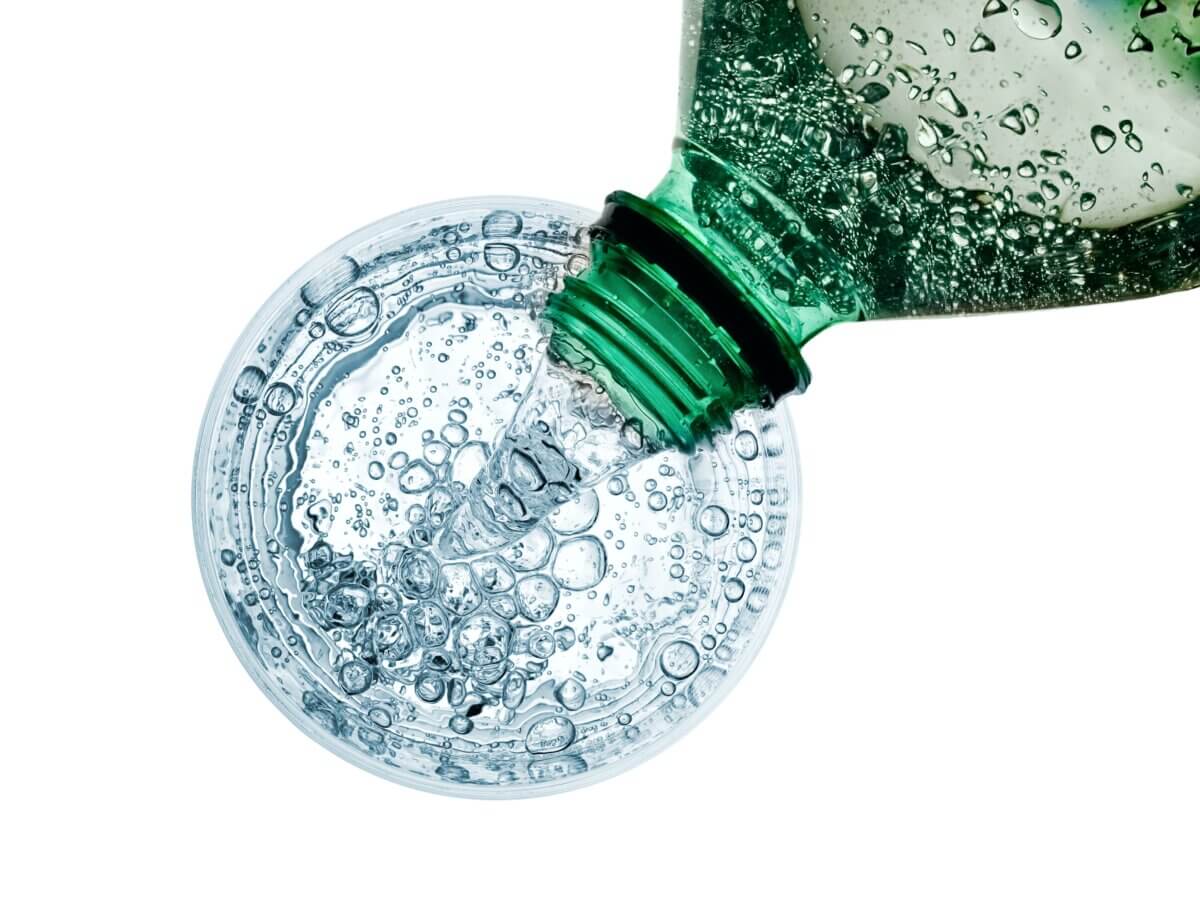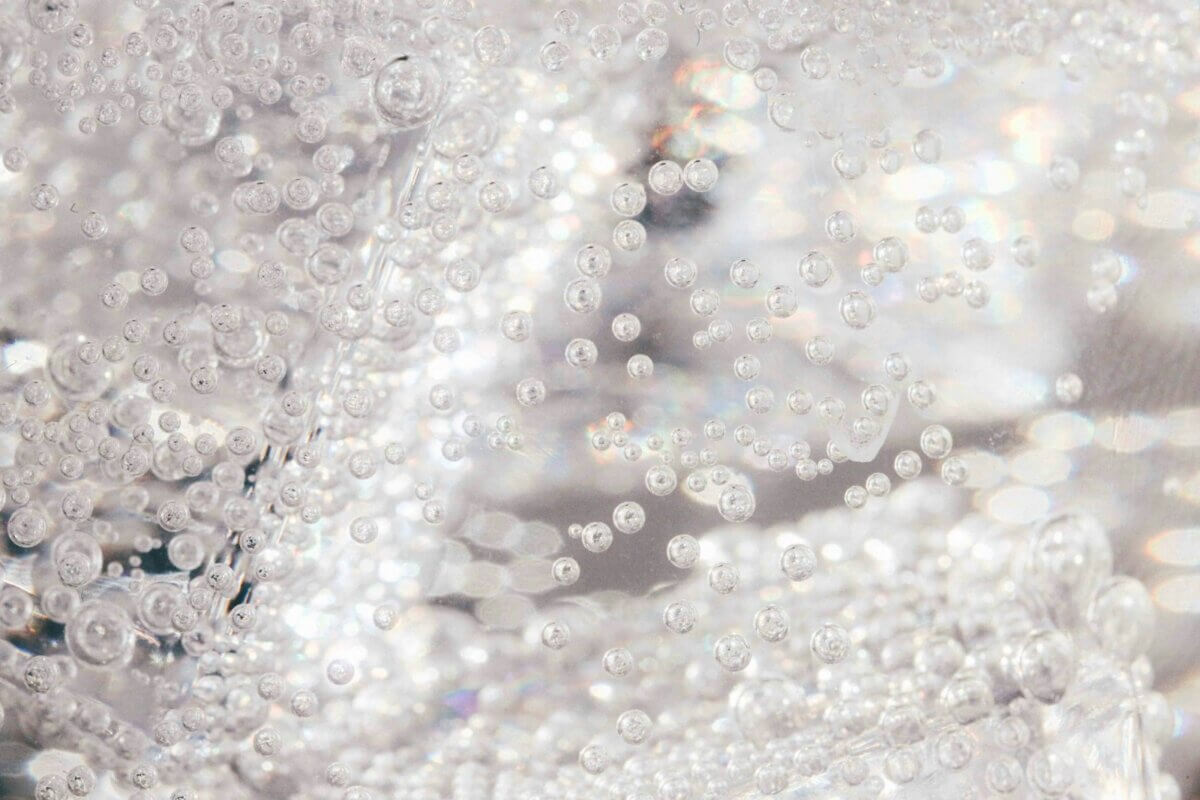
(Credit: Mariyana M/Shutterstock)
The idea that carbonated water is bad for your kidneys has started to spread like wildfire in the digital wellness space. It’s one of the newest ways some influencers are trying to instill fear in others about their food or drink choices — and generate more views. However, much of this is just hyperbolic speculation with little backing by science.
Soda water is made fizzy by infusing still water with carbon dioxide under pressure to generate bubbles. Then, additional minerals are added, usually sodium bicarbonate, to help maintain the bubbles when the water is mixed with other things. This helps give soda water a uniquely tangy flavor.
One could possibly argue that the sparkling drink creates a risk of developing kidney stones because of the additional sodium you get from sodium bicarbonate. This is because a high-sodium diet can increase your chances of getting kidney stones. However, you’d have to drink a lot of it to put a dent in your sodium intake. One serving usually provides 100-150 mg of sodium, which would classify as a low-sodium choice. There are much more likely contributors to excess dietary sodium, like fast food and salty refined snacks.

These waters may also contain a small amount of calcium, which has made some people skeptical as well. While the tiny amount present in carbonated water probably isn’t going to contribute much to your daily intake, calcium actually works to reduce kidney stone risk.
The most common types of kidney stones are calcium oxalate stones. This is a compound that forms when calcium and oxalic acid bind together. Oxalic acid, more commonly known as oxalate, is found in a variety of plant foods like spinach, almonds, and soy.
Calcium helps the body to process oxalates and move them through your system before causing kidney stones. If you don’t have enough, it increases your risk. So, you actually want calcium! Moreover, these fizzy waters also often contain magnesium. Magnesium can make it easier for oxalates to pass through your urine without causing kidney stones.
There are no reliable studies that currently show us that carbonated water causes kidney stones. Of course, there could be a chance, and everyone’s body is different. We do know that the mineral content of these waters varies, so each individual brand or bottle won’t have the same amount of minerals. Still, just read the label and know that there likely isn’t a huge amount of variation across brands that’s worth high levels of concern.
Also, remember that carbonated water is still water and is a great way to get your fluids up if drinking plain water isn’t exciting enough for you. As a dietitian, I can tell you that I drink carbonated water almost every day without concern. Because of this, however, I try to drink it with a straw to reduce contact with my teeth and reduce the risk of enamel breakdown.










